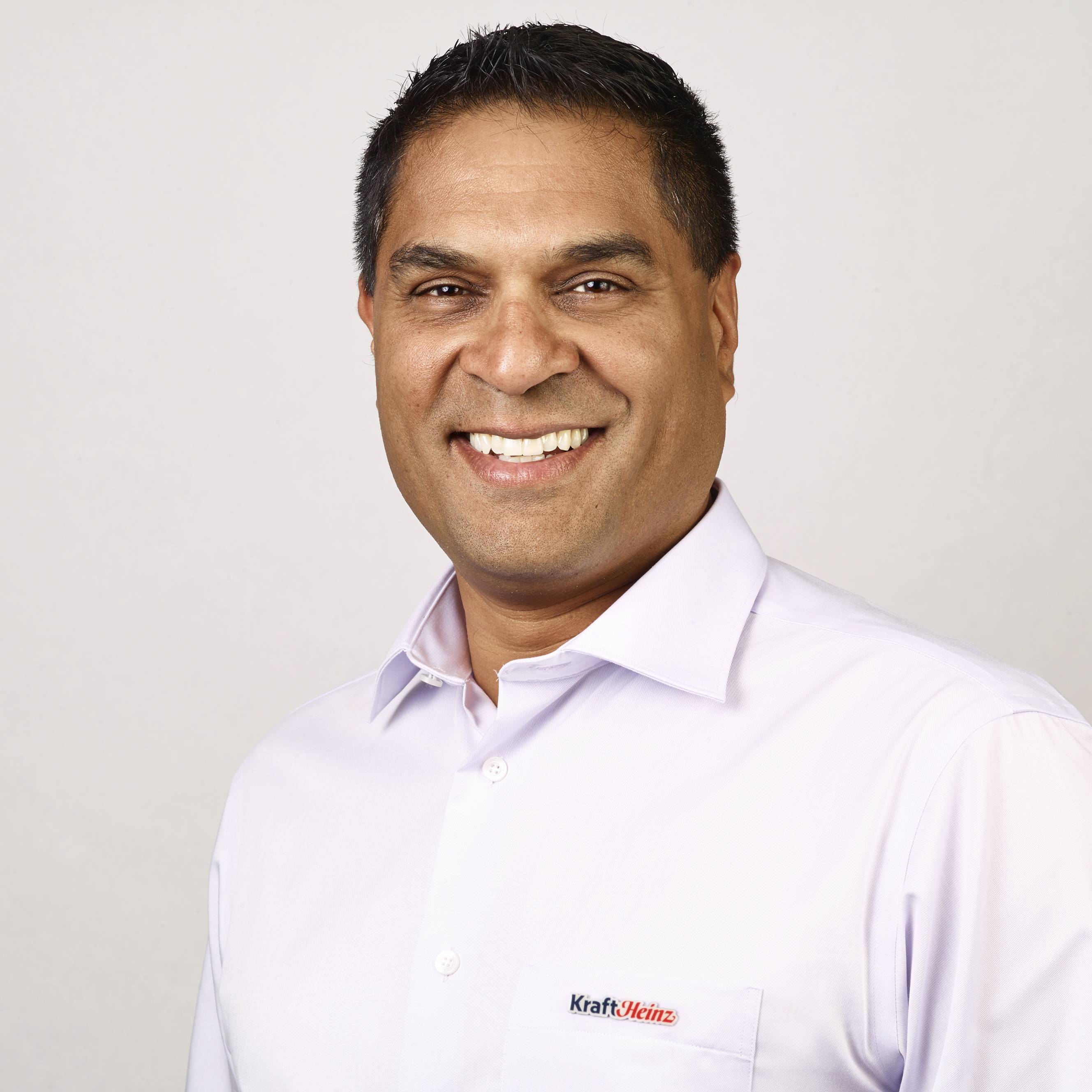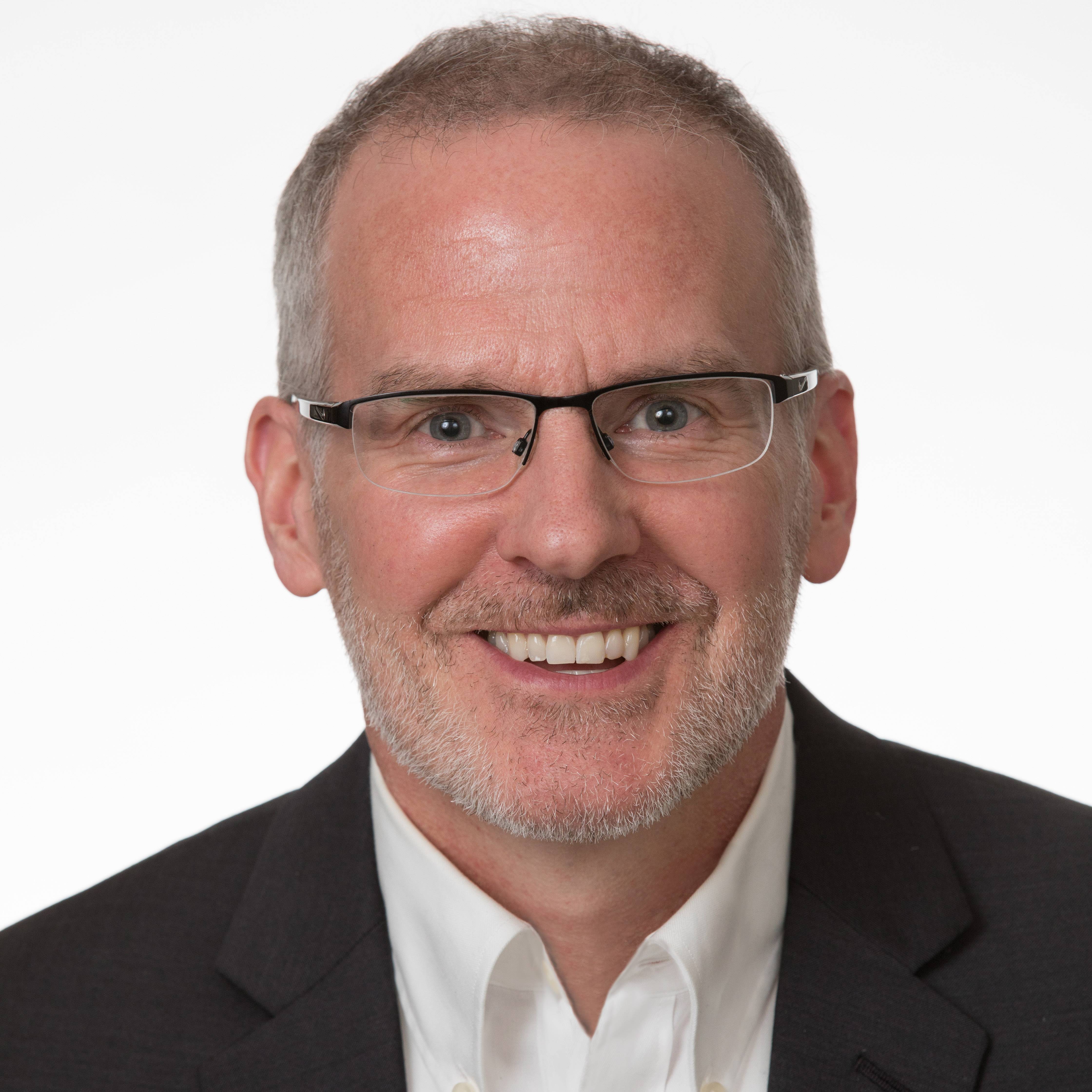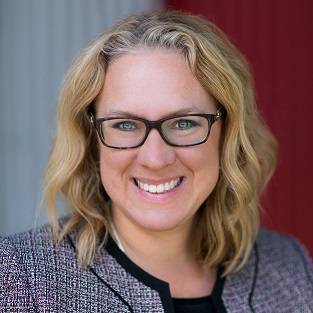General counsel discuss critical issues facing businesses as the world prepares for life after COVID

Editor's Note: In line with federal government expectations announced August 13, as a federally regulated employer, HSBC Bank Canada will be requiring all employees working in offices or branches to be vaccinated against COVID-19, effective November 1, 2021.
Panelists:
 Av Maharaj, chief administrative officer, VP legal, corporate affairs and HR, The Kraft Heinz Company, the third largest food and beverage company in North America
Av Maharaj, chief administrative officer, VP legal, corporate affairs and HR, The Kraft Heinz Company, the third largest food and beverage company in North America
 James Petrie, chief legal officer, NB Power, New Brunswick’s electric power utility
James Petrie, chief legal officer, NB Power, New Brunswick’s electric power utility
 Leola Pon, general counsel, executive officer, legal services and governance, Toronto District School Board
Leola Pon, general counsel, executive officer, legal services and governance, Toronto District School Board
 Lilac Bosma, senior vice president and general counsel, HSBC Bank Canada, the Vancouver-headquartered Canadian subsidiary of the British multinational banking and financial services company
Lilac Bosma, senior vice president and general counsel, HSBC Bank Canada, the Vancouver-headquartered Canadian subsidiary of the British multinational banking and financial services company
 Robert Ellis, chief legal officer and senior vice president, sustainability and compliance, Celestica, a Toronto-based multinational design, manufacturing and supply chain solutions company
Robert Ellis, chief legal officer and senior vice president, sustainability and compliance, Celestica, a Toronto-based multinational design, manufacturing and supply chain solutions company
The 16th annual InHouse General Counsel Roundtable examines the post-pandemic recovery phase, and the role of in-house counsel in guiding their businesses smoothly through this unique and complex period in history.
Representing five diverse organizations from across Canada, our legal leader panelists came together virtually to discuss their biggest concerns as the COVID-19 vaccine is rolled out and employees slowly return to physical workspaces after many months of remote work. Critical issues this year for all our panelists include vaccine policies, hybrid working models, employee mental health, ESG and diversity and inclusion within organizations. Other issues are unique to specific industries. Supply chain and contractual issues are top of mind at NB Power, while privacy surrounding online school is a key concern at Toronto District School Board, for example.
With regard to vaccine policies, most employers are reluctant to make the COVID vaccine mandatory, although it is strongly encouraged. Like the initial onset of masking polices, vaccine policies are likely to stir up strong opinions, and potential legal battles.
“There are two pieces of litigation that we are involved in so far involving COVID related measures, and so I anticipate that may increase once the vaccination issue becomes more of a prominent matter,” says Leola Pon, general counsel, executive officer, legal services and governance at Toronto District School Board.
James Petrie, chief legal officer at NB Power adds: “I wish there was clearer guidance from government, so that we do not have to expose ourselves to potential arbitrations, human rights complaints, or potential litigation.”
Legal departments are focusing on mental health awareness more than ever before, as stress and anxiety have plagued many people throughout the pandemic crisis, and burnout has become commonplace.
Robert Ellis, chief legal officer and senior vice president, sustainability and compliance at Celestica notes that anxiety around returning to the office is a new trend which needs to be carefully managed.
“I think it is important to give reassurance and communicate well in advance of making any changes that are going to require people to go back to the office in a way that they are not comfortable with,” he says.
Legal departments should take a lead in working to remove the stigma surrounding mental health issues, according to Lilac Bosma, SVP and general counsel at HSBC Bank Canada.
“With the mental health struggles I have seen during COVID, it is a good opportunity to raise the issue and to normalize these conversations,” she says.
ESG matters are also critical as organizations strive to meet the demands of stakeholders and customers. Bosma’s team at HSBC is at the forefront of developing sustainable finance products, while Ellis’ team at Celestica is working to help the organization meet measurable sustainability targets in a number of different areas, including greenhouse gas emissions.
Diversity and inclusion are growing priorities for all of our panelists as they strive to improve hiring policies, to eliminate discrimination within their own organizations, and to hold law firm partners accountable for their own policies.
“I think my first premise is that people have soft-pedaled it for too long,” says Av Maharaj, chief administrative officer, VP legal, corporate affairs and HR at The Kraft Heinz Company. “People, especially in legal groups, have put up roadblocks because of our overarching conservatism. I think we in legal have an opportunity to challenge our groups, and our companies, to do more.”
INHOUSE: What concerns you the most about the post pandemic recovery phase for your business? And what role is the legal department playing in ensuring a smooth transition?
Maharaj: There are lot of questions that are top of mind. Things like what are the obligations of employees returning to work? What are the obligations regarding vaccinations? What are the safety protocols? I think there is a lot of uncertainty, and your employee base has a lot of questions, and so this is an opportunity for the legal group to really add value and help employees. Our legal group is actually leading the return to office, figuring out the protocols, figuring out when we are doing it and how we are doing it.
Bosma: I completely agree with everything Av said. I would also add to that the issue of general wellness — particularly mental wellness of employees — because this has been a really tough time. It has been very hard on people, and so I know we need to focus even more on wellness and making sure that we are listening to employees from the top to the bottom, all over the globe.
Petrie: As a public utility at NB Power, we do a large amount of procurement of goods and services and we are really seeing that upward pressure on metals and wood and other raw materials that our utility uses. As a legal team, we have been extremely busy lately looking at law over the contracts and working hand-in-hand with the corporate procurement team, just to take a look at all of the contractual issues that have arisen in these types of situations where these are must-have products that we need. We are reviewing key terms of our supplier agreements to assess the risk of canceled contracts, for instance, versus the potential loss of a supply of key equipment or part or material.
Pon: At TDSB, we provide service to a quarter of a million students, 40,000 employees and 600 buildings, so it is an enormous undertaking. We also have different unions involved, so one of the concerns I have is just trying to ensure we can manage all the conflicting opinions on what is the best way to return in a safe manner. When we do return to in-person school, there will still be some version of remote working, I believe, so privacy is going to be a very key issue for us.
Ellis: Because we are operating in 30+ different locations, we have just a huge number of different regulatory environments and different vaccines and different access to vaccines. So, part of the challenge for us is trying to create any form of a unified rollout policy when you have so many different local variants of COVID happening, as well as different vaccines being available and different vaccine distribution. The biggest challenge for us is just understanding the requirements and then trying to be consistent while still respecting local compliance.
INHOUSE: How do you plan to navigate the question of vaccines for employees and managing those who do not wish to be vaccinated?
Bosma: We actually do not foresee this as a really large issue, given the uptake of vaccines so far in the country. Our position has been that we will not be requiring people to be vaccinated, and that is a global position. If there were concerns, we would be managing that through our HR on a case-by-case basis.
Maharaj: We started doing some research and hiring external counsel to find out what the law is going to be, and I am sure all my colleagues on this call have done the same thing. We are not going to demand people get the vaccine, though we strongly encourage it.
Ellis: We are not mandating, but we are supporting and encouraging being vaccinated. A big part of what we are finding is that our customers and other business partners are also pushing us in that direction, and I think that is helping with some of the hesitancy we are seeing. It is similar to early discussions around the roll out of masks. One of the things I am quite proud of has been our top-down approach to communication around these safety measures. These are not political statements at a site level; a message was delivered consistently throughout the discussions around PPE. And that is carried through the vaccine side as well. It is in everyone’s interest to get back to normal personally and professionally as soon as possible, but we are not mandating it.
Pon: Since the very beginning, we have been working closely with Toronto Public Health. We also take guidance and direction from the minister of education. When it came to masks, our legal department received a lot of inquiries from our clients about challenges to our masking policy, so I anticipate something similar with whatever we do on the vaccination issue. There are two pieces of litigation that we are involved in so far involving COVID related measures, and so I anticipate that may increase once the vaccination issue becomes more of a prominent matter.
Petrie: We have researched it a lot, like everyone on this call, and I think it does seem there is a consensus that we can, as an employer, legally demand mandatory vaccines. I am not saying that is the way we are going. I think we are still on the fence a bit. I wish there was clearer guidance from government, so that we do not have to expose ourselves to potential arbitrations, human rights complaints, or potential litigation.
INHOUSE: What is your strategy for preparing for the return to physical workspaces? Will you shift to a permanent work-from-home policy, full time in the office, or a flexible hybrid model?
Ellis: Because of the manufacturing work we do and the products that we prepare, we have been up and running throughout the pandemic. So, there has been kind of a split between the folks that need to be on the assembly lines producing the products and those that are able to do their jobs effectively in a virtual environment. I expect us to move to a hybrid model for those folks that are able to do their work from a remote location. We have been actively submitting questionnaires and getting feedback from staff and we are certainly getting some fairly strong messaging back that people are interested in continuing with some form of a hybrid model, and also that a lot of people are very much missing that in-office environment.
Pon: We are in the process of developing a policy or procedure to provide some guidance on how to go about this. We were actually looking at remote working before COVID hit just to try to modernize the way we do work, and there was a lot of hesitation, of course. There are some positions that cannot work remotely. I would imagine the school-based frontlines would still be business as usual, for the most part, but for a good portion of our employees, we are going to have something in place, hopefully, by the time September rolls around. At the same time, there also needs to be an investment in the technology to support remote working. In our legal department we are working on a document management system that launched during the beginning of COVID, so that actually helped us with a very smooth transition.
Bosma: HSBC is a global organization, so remote working and flexible working is not something that was a big change for us with COVID. It certainly became more intense, and we went from a good portion of people working remotely on any given day to everybody except for our very valuable branch staff and other folks who do need to be present in the office. We are using what we have done in the past and moving towards a very clear hybrid work model. There are certain challenges that arise from remote work for lawyers — particularly with respect to training newer lawyers, who would often learn by sitting with a more experienced lawyer. As we move forward to having a more flexible workforce, I am thinking about how we can make sure that we are giving our more junior members really solid training.
Maharaj: We believe in ownership and meritocracy at Kraft Heinz, which means even before COVID, you get to work like an owner, take as much vacation as you want, work where you want and work when and how you want. To be honest, I have no clue how much vacation my team takes, and I was that way before COVID. So, when COVID hit, the flexibility worked very well. The focus on mental health became very, very important and it still is because as we come out of the pandemic, we are going to have different mental health issues that we are going to need to deal with. The other big thing is communication. At one point at the beginning of COVID, we were having town halls every single day, so we overemphasize communication.
Petrie: We are currently reviewing the matter. We have our HR department preparing a policy on this very issue. We did take an actual poll of our 2,600+ employees and we had 99 per cent indicating a preference for some component of working remotely. I would expect it will be some sort of flexible hybrid policy for those who are able to work remotely. The other thing that is really becoming clear to us — COVID or no COVID — is that as the demographic shifts, there is this deep need to have more flexibility. To be a competitive hirer of talent, I think we are going to have to get used to that.
INHOUSE: What focus is the organization putting on mental health and what is the role of legal in any such initiatives?
Pon: The mental health issue is quite prominent among our students. We are very fortunate — we actually have a pretty large set of resources including psychologists, social workers and counselors available for the students and their families and of course, for employees we have an [employee assistance program]. I think it is also incumbent on each manager or supervisor to have that connection with employees. We have been working nonstop since the pandemic started, so people are exhausted and stressed. I think that has caused an increase in the number of incidents of bullying, harassment, aggressive behavior, and unfortunately in our legal department, we have been sought out for advice on dealing with aggressive behavior from parents and members of the public. That is something we are trying to deal with from a legal perspective.
Ellis: The focus on communication has been extremely important. One of the things that I frankly expected at the beginning of all this was a huge increase in the number of whistleblower complaints we were receiving. I think by having a really good and well-orchestrated line of communication, we have managed to alleviate a lot of concerns that might have otherwise led to whistleblower complaints being issued. One thing that I am noticing with my teams and with others that we are speaking to is just anxiety around returning to the office. I think it is important to give reassurance and communicate well in advance of making any changes that are going to require people to go back to the office in a way that they are not comfortable with, so that to me is kind of the next trend that we are going to be seeing.
Petrie: Like many employers, we are seeing firsthand the effects of COVID fatigue and mental burnout and stress. NB Power has been incredibly proactive on this. We set up an online mental health and wellness hub that contains all the helpful articles and videos and links to health care providers, and even features some special speakers we brought in to support employees. We actually ended up creating our own in-house employee helpline, which is a confidential phone service with NB psychologists and registered nurses to answer questions. We have also introduced the concept of a mental health cafe, which is really just an informal coffee shop approach to discussing mental health issues and it can be in a team or group environment. We just entered into a new arrangement with a new employee and family assistance program provider, which was desperately needed. Our legal team has been really instrumental in trying to get that contract, procure it, paper it, and introduce that new arrangement in a very short time to really help our employees.
Maharaj: I found that it was the people that were living downtown — in the big cities, basically, in a box in the sky, with no support for them, nowhere to go, and everything is closed downtown — who were suffering. You can only take so many walks and work out in your living room floor before you go stir crazy. Those are the individuals that have real challenges. We did a number of things to be creative with mental health. We made sure we had a lot of coffee times, we had a buddy system, we had virtual socials, to ensure that people were engaged. The organization gave everybody a sum of money and said “go buy dinner on us,” and then all take pictures together. Of course, we have the hotlines, and we actually have an emergency mental health team, so if you need somebody, there are in-house people that are trained for that. Obviously, our legal team had to carefully vet that process.
Bosma: I really am personally convinced that the topic of mental health is something that really does need to be talked about in the legal profession, both in-house, and more broadly. There does remain some stigma around the issue of mental health and anxiety and depression among lawyers. We are really taught as lawyers to just power through power through power through, and if you cannot power through that, that can be seen as not suited to the practice of law. I feel a deep personal conviction to change the conversation on that piece starting with my own department, to really de-stigmatize the idea of mental health. One of the main things we can do in the legal department is to be open and authentic about the fact that mental well-being is something that every human being struggles with at some point or another, and that we should try to remove the stigma. With the mental health struggles I have seen during COVID, it is a good opportunity to raise the issue and to normalize these conversations.
INHOUSE: How are you addressing the issue of diversity and inclusion from your legal department?
Petrie: NB Power is actually in the process of rolling out a new diversity and inclusion strategy. It obviously renews the commitment by this company to create that kind of a culture and workplace. NB power has always been known as being a very fair and forward-thinking employer in the province that attracts talent from a wide variety of cultures and backgrounds, and genders and races. Speaking of the legal department specifically, we have gender parity, but one area I personally would like to improve is our linguistic profile by engaging a bilingual lawyer, which has been long missing.
Maharaj: I think my first premise is one that people have soft pedaled it for too long.
People, especially in legal groups, have put up roadblocks because of our over-overarching conservatism. I think we in legal have an opportunity to challenge our groups, and our companies, to do more. I am proud to say that I take this view at Kraft Heinz, and I am even more proud to say that the company is ahead of me. We have joined the Hockey Diversity Alliance, and we have joined the Black North initiative. When the horrific incidents happened down in the States, we donated a ton of money down there, as well as having a speaker series on these issues, not only for people of colour, but also for Indigenous people, people with disabilities, and the LGBTQ community. There is a lot more we can do.
Bosma: I could not agree more with the fact that we in the legal industry need to challenge ourselves a little harder on this point. I feel quite grateful to work in an organization that has valued diversity for a very long time. I personally have been the beneficiary of a lot of really excellent leadership training that that helped me as a young woman with children, looking to become a leader. I recognize that there is a lot that we can do here to remove barriers for underrepresented people in the legal industry generally. It is not just about doing the right thing. It is also about a very strong and important business imperative. Teams are better if they are diverse, and diversity does not mean anything unless everyone feels included. At HSBC, we have joined the Black North initiative. I am also looking to speak to my external firms about their diversity and inclusion programs to hold them accountable, and to make sure that they have sustainable pipelines of talent from all walks of life and all backgrounds. The other thing we are doing is a lot of reverse mentoring programs, where someone from an underrepresented background will mentor a more senior person to help that person understand the challenges that they have faced, as a way of building empathy.
Pon: At TDSB, we are deeply involved in working on issues of equity. It is one of our key pillars and we actually do it. It is not just a statement or commitment. We are held to account for it by members of the public, our own school communities and staff, and we still have a long way to go. Our human rights office released an annual report and did some analysis and set up an action plan on where we need to improve, especially in anti-Black racism. We also act as critical friends to other departments, so if we are observing something that maybe could be handled a little differently, from a different lens, we provide that advice as well. In about a year or so, we are going to renew or refresh our RFP for external legal services. The last time we renewed it in 2017, I included criteria for examples of the firms’ commitment to diversity, equity and inclusion. So, I am going to re-examine how we are going to do that again. I want to modify a bit so that we can try to capture a wider field of law firms who are also engaging in this type of work.
Ellis: One specific tactical thing that I did in my department was to engage our human resources team to do an objective appraisal of where we stood as a team with respect to overall compensation, just to give me a very unbiased view of whether they thought that we were achieving the right level of equity within my team from a compensation perspective. I think it was important to have that objective perspective from an outside group coming in and looking at things to really test to me as to where folks were slotted — not just from a cost perspective, but also in terms of leveling career progression. I think the thing that we have gotten the most traction from is the working team that is focused on diversity, and specifically giving them an opportunity to ask for resources that are needed, across the whole spectrum on the recruitment side, and making sure that they have an active voice.
INHOUSE: What is your strategy for other ESG matters?
Bosma: ESG is an area that is very near and dear to my heart. It is such a joy to be able to work for an organization where you see values being espoused and pursued that that align with your own values. We have already talked about diversity and inclusion. HSBC is very focused on sustainable finance, which I think is an enormous opportunity for the world to really make a change in terms of climate change. So, my teams are having the really interesting job of being at the forefront of developing sustainable finance products, and that is something that we are very proud of, and interested in, and looking forward to continuing that journey.
Petrie: NB Power has several components of ESG strategy already in place, particularly on the environmental side, of course, given that we are a utility power company, but it is still very much an evolving process for us. So, our board of directors currently is working towards a more formal position on ESG.
Ellis: This is front and center for me. Functionally, I break it down into each of the different areas. A big part of what is active for us right now is that we have just exited a series of targets that were slated to end with our 2020 measurements. So, my objective right now is to refresh those targets and examine what are the things in 2021 that we are most focused on. Are those old metrics still relevant? Are there new ones? I think on the environmental side, for us, it's greenhouse gas emissions, so I am very pleased that we were the first of our competitors to actually set a target that is objective, and that is measurable by third parties. On social, it is diversity and inclusion, of course. On governance, a lot of it is around the board and making ESG part of their own mandate and review, so we made sure that we have that level of strategic oversight from them on ESG matters. We have our own set of metrics for each of those three things, but we are again at that stage of now setting plans for the next five to ten years, so it is an exciting time for us.
Maharaj: As well as diversity and inclusion, the biggest issue I would look at is social. What you see in the corporate world is a permission that has permeated through the publicly traded companies to talk about social issues in a much more forceful way, and I am very happy about that. The issue for me is, we now play a much more prominent role in social issues than we ever have. I think that is where our legal groups can challenge once again, because we can actually push the organizations by giving them that permission to shine our collective lights into some of the darker parts of the internet and our society. So, I think that is the biggest opportunity we have.
Pon: I am actually in the middle of taking a course on governance, because the governance department is now in my portfolio. In terms of our governance work, we are currently undergoing a bylaw review, and this year we decided to embed equity into an analysis of our governance procedures. It is different, it is challenging, and there is not a lot written about that. We are working with our board of trustees who are elected officials of that, to give their analysis. We also have an integrity commissioner doing her analysis as well. And that initial conversation helps guide the discussion that carries on with the rest of the bylaw reviews.









